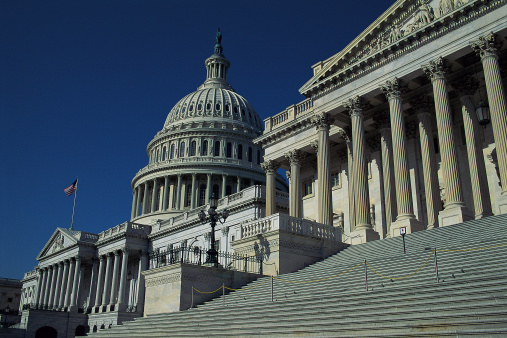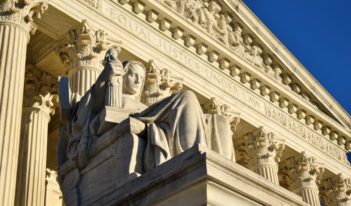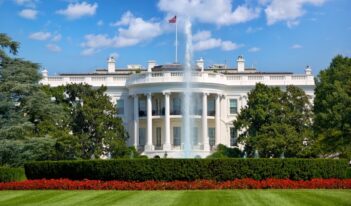
The new year will see renewed and profound controversy between the branches of the federal government.
This month not only marks the start of a new year, but it also kicks off Barack Obama’s final two years as president. The specific controversies and events looming ahead for the president and the nation in the coming year cannot be fully predicted, but one thing is certain: policymaking in Washington in 2015 will experience more conflict between the legislative and executive branches of government, with potentially significant opportunities for the judicial branch to weigh in.
In terms of major policy issues, we can anticipate at least the broad contours of what lies ahead in the coming year. The economy will continue to loom large, with hopes for continued economic expansion, rising employment, and low inflation on the home front tempered by still sputtering economic conditions in Europe and elsewhere. The administration will also surely continue to confront international conflicts and threats, and the nation will face domestic tensions at home, especially with respect to issues of race and law enforcement. Politically, we can be certain that the coming year will see the 2016 presidential campaign begin in earnest.
What remains to be seen is how much work can be accomplished in Congress. Judged by the number of laws adopted, the 113th Congress was among the least productive ever. Republican control of both houses of Congress may make passage of legislation somewhat easier – but the Democrats still retain enough seats in the Senate to make passage of controversial legislation difficult under existing filibuster rules. (We shall see whether the Republicans move to change these rules.) And of course, the President still wields a veto threat. Since the Republicans lack the super-majority needed to overturn a veto, one doesn’t have to go too far out on limb to predict that the coming year will also see an increased use of presidential vetoes.
One thing you can count on: the upcoming year will bring continued political and legal controversy between the legislative and executive branches of government.
If much of anything is to get done, President Obama will either need to forge compromises with Republicans in Congress – like those in the recent appropriations bill – or he will have to “go it alone.” Although more compromises might be possible, in today’s polarized political climate we probably shouldn’t expect many of them.
President Obama will still have a strong incentive to pursue his policy priorities through unilateral action. So far, he has been far from reluctant to exercise his powers as president. On the international front, he has unilaterally acted to forge what appears to have been a game-changing climate change agreement with China, and he has initiated the restoration of diplomatic ties with Cuba. In terms of domestic policy, his administration has not only used enforcement discretion to manage the implementation of deadlines under the Affordable Care Act, but President Obama also recently announced sweeping action to give limited relief to millions of immigrants with illegal status. Administrative agencies are likely to forge ahead, at the president’s direction, in the coming year with a variety of important regulatory policies, whether on climate change or net neutrality.
Yet President Obama’s unilateral exercise of executive authority will hardly escape challenge. The House has already filed a lawsuit challenging the Obama Administration’s delays in enforcing deadlines in the Affordable Care Act. (The Supreme Court will separately decide another potentially significant lawsuit this year.) More than 15 states have sued over the administration’s expanded deferred action policy on immigration. Recently, a federal trial court judge raised the legality of the immigration policy in a separate lawsuit, declaring the administration’s actions to be unconstitutional. We can expect more court decisions in the coming year. For example, when the U.S. Environmental Protection Agency finally issues its rule to control greenhouse gas emissions from power plants, still more litigation will ensue.
As important as litigation over administrative decisions will be, it will definitely not be the only, or perhaps even the most important, battleground over presidential-congressional power in the coming year. The new Republican Congress will almost surely pass legislation seeking to undercut the president’s powers and priorities, whether on health care, immigration, energy and environmental policy, and financial regulation. The Congress may also succeed in passing bills that more generally reform regulatory procedures and constrain administrative action, such as the proposed REINS Act.
Even though the specific events and crises of the coming year cannot be forecasted with certainty, it is safe to say that 2015 will be a year filled with all three branches of government exercising the many intertwined and offsetting powers built into the U.S. constitutional system. We may well look back on 2015 and declare it the year of “checks and balances.”




